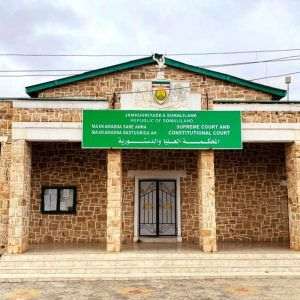Even though they have banded together into an entity whose goal is to discuss with the authorities the issues investors are faced with, businesspeople now find themselves needing to publicly protest against the tax on special constructions, as prime-minister Victor Ponta was adamant that everything concerning the application of this tax is clear. "Everybody has understood very clearly what tax statements they need to file and what they need to pay", the prime-minister recently said.
The Coalition For Romania's Development is an entity that brings together 20 business associations, 17 associated member organizations and two observers, which has as its goal to be a common voice of the business community in the relationship with the government and the central authorities.
The ordinance through which the Government approved "the pillar tax" does not yet have any methodological application norms and does not clarify the method used for its calculation and the types of special constructions that get taxed.
Even though the business sector has repeatedly emphasized that the new tax would have a significant negative impact on the entire economy and that all the investment plans will be thinking whether or not they will even continue to invest in Romania, it would seem that the authorities have no reaction whatsoever.
The businesspeople are once again requesting the elimination of the special constructions tax, claiming that the new tax, which came into effect this year, increases the tax burden two or even three times in certain industries.
Daniel Anghel, a member of the management of the Council of Foreign Investors (FIC), said that if this tax were not eliminated, the tax on special constructions should be adjusted to "to a real economic basis", and the tax rate should be lowered.
Eric Stab, the CEO of GDF Suez România, said that all investors will reconsider their business plans: "The foundations of any investment can change when something like this happens. We need to see whether it would be a good thing to continue our investments or to continue investing somewhere else".
Nicolai Beckers, CEO of Romtelecom, said: "We want to implement fiber optics as soon as possible, but that plan is no longer viable, given the new tax. The government holds 46% of Romtelecom, which means it is simply taking the money from one pocket and moving it into the other".
The business sector is requesting at least for the new investments to be protected, by granting them a grace period of 3-5 years.
"That tax will generate huge losses for companies, by increasing their taxes two or even three times in certain industries. Furthermore, there are industries where the revenues are fixed, and the profits are small, and they are also unable to shift the cost of that tax to the consumers. The only solution for the companies in those industries is bankruptcy", says Daniel Anghel.
According to Steven van Groningen, the president of the Coalition for Romania's Development, "if we want to get closer to the European standard of living, we need to have a bigger economic growth than the EU average". For that, we need an environment which is predictable from a legislative point of view.
"We do not have a predictable environment in Romania, there is a lack of clear strategies to indicate the direction that the legislation is heading in. There isn't a reasonable period for the implementation of certain measures, you never know how a law is supposed to be implemented. This lack of predictability has two effects - lower investments and greater costs for the end consumers".
• Mihai Bogza, FIC: "The introduction of the tax on special constructions will create major distortions in the economy"
The Council of Foreign Investors (FIC), Romanian Business Leaders (RBL) and the Association of Romanian Businesspeople (AOAR) warn that the introduction of the tax on special constructions in its current form will have a major negative impact on the business sector.
Mihai Bogza, the president of the FIC says: "The introduction of the tax on special constructions, as featured in the Government Ordinance, will create major distortions in the economy, especially since, just a few days before the deadline for its filing and payment, there are still lots of unclear elements concerning its implementation. To say nothing of the fact that its very manner of application could cause major issues in the economy and that it leaves room for abusive interpretation by the fiscal authorities. Imagine that a company has some old installations, which have been fully amortized, but which have not been written off and which it is no longer using, but it will pay 1.5% of their gross value. Personally, I feel that this is a situation that is perfectly illogical from an economic point of view and yet perfectly real".
In order to unequivocally emphasize the impact of the construction tax, the business sector has started its own impact assessment. The results of the study were submitted to the authorities to draw attention to the major repercussions generated by the implementation of this tax.
"38 companies from industries such as telecommunications, construction materials, energy, transport and logistics, production of alcoholic drinks or the pharmaceutical industry have contributed important information to the impact analysis. This analysis has uncovered a combined impact of the special construction tax of approximately 1.1 billion RON, which makes me seriously think of a far higher impact at the level of the entire economy, which has a serious chance of exceeding the authorities' expectations of 1.5 billion RON, of which only 500 million collected by the state budget", said Daniel Anghel: "The assets subject to the construction tax have a long operating life, ranging between 10 and 60 years, and the tax rate is extremely high, so we can infer that a taxpayer would be paying between 15% and 90% of the total amount of the asset, which is excessive and denotes the failure by the initiators of this law to understand the impact of this law in the medium and long term. The introduction of this tax without the prior consultation of the business sector and without conducting an impact assessment affects the companies that have invested in Romania, questioning the very viability of each company's business".
• FIC: "The new tax will lead to a conflict between the local authorities and the ANAF"
The representatives of the business sector claim that the new tax will lead to a conflict between the local authorities and the National Tax Administration (ANAF), as there will be situations where double taxation will occur.
In the opinion of the representatives of the business sector, there is still a chance for the tax being amended in the Parliament, where the law for approving Ordinance 102 which concerns the special taxes is going to be debated.
In yesterday's event, Eric Stab mentioned that the special construction tax would have an impact of 240 million lei on the top five Romanian utility companies.
If the energy regulator acknowledges this additional cost at the time of setting the tariffs of utilities, the new tax on special constructions may be included in the prices paid by end-users, he said.
In the agricultural sector, it would be opportune to exempt certain structures such as greenhouses or silos from this tax, businesspeople say. They are saying that the new tax is discriminatory, because it only applies to companies, thus leading to competitive distortions between them and the individuals conducting the same activity.
According to Daniel Anghel, Romania has a taxation rate of 42.9%, being among the countries with the highest tax rate. The average European tax rate is 41.8%.
In Romania there are 39 taxes, supplemented by the additional fuel excise and the tax on special constructions, as taxpayers need 200 hours a year to file and pay their taxes, he mentioned.
In the beginning, the Government introduced a property tax on special constructions, of 1.5% of the amount of the construction.
The tax applies to constructions such as hydroelectric plants, transformer stations and posts, relay stations, thermoelectric and nuclear plants, constructions for the transporting of electricity, dams, tracks and platforms, drills for crude oil, natural gas and salt, loading and offloading ramps, smokestacks and cooling towers, tailing ponds, fishing ponds, pools, railroad transport infrastructure, road infrastructure and telecommunication cables and lines.
In January, Dan Manolescu, secretary of state in the Ministry of Public Finance (MFP), told us that the Parliament may amend the Ordinance concerning the tax on special constructions, specifying that the authorities have come to the conclusion that some amendments are necessary, given the reactions of the market after the approval of this tax.
A PROJECT BY THE ANRE
• The "pillar tax", to be recouped through the regulated energy tariffs
ANRE (the regulator of the energy market) has drawn up a draft order to amend the methodology for setting the prices for the electricity sold by producers based on regulated contracts, specifically to the population and the Thermoelectric Plants that provide heating.
If this order gets approved, the producers will be able to recoup the cost of the notorious "pillar tax" (ed. the tax on special constructions) by hiking their prices, sources from within the ANRE told us. So far, none of our producers came up with a proposal to increase their prices following the application of the pillar tax, our sources claim.
The draft put up for public debate states: "The median regulated prices for electricity can be adjusted, at the proposal of the ANRE or at the request of the producers participating in the regulated contracts, in the beginning of the second semester of every contractual year, if the average acquisition price of fuel (or the cost of processed water, in the case of hydroelectric groups) paid in the first quarter of that year has changed by at least ± 5% compared to the one taken into consideration when setting the prices in effect; if, during the 1st half of that year, new taxes come due or have been paid, in part or in full, which have not been taken into consideration when setting the prices in effect".
Producers that provide energy to the population and to the Thermoelectric Plants (CETs) are Nuclearelectrica and Hidroelectrica, which are both subject to the tax on special construction.
Two days ago, Dragoş Andrei, advisor to the Prime Minister, said: "In a few days, the tax on special constructions will come into effect. It is a measure which should have been better prepared, discussed more in detail, with the representatives of the business sector, because every day there are new situations which its promoters did not take into account when they promoted it. I will give you an example, perhaps it is not the most relevant, but if this tax gets applied on the reactors of Cernavodă, it's over! Nuclearelectrica will have a major problem because all of these aspects were not taken into consideration".
On May 14th, the minister of Energy, Răzvan Nicolescu, said that Nuclearelectrica needs clarifications to determine the exact amount of the tax on special constructions (dubbed "the pillar tax").
Daniela Lulache, the CEO of Nuclearelectrica said that, based on the company's evaluations, the amount of that tax is about 100 million lei, which would add 10 lei/MWh to the company's production costs.
All energy companies must pay this tax, which would mean, according to some market sources, that the population and companies would also bear price increases stemming from energy transport and distribution tariffs. (A.T., translated by Cosmin Ghidoveanu)



















































